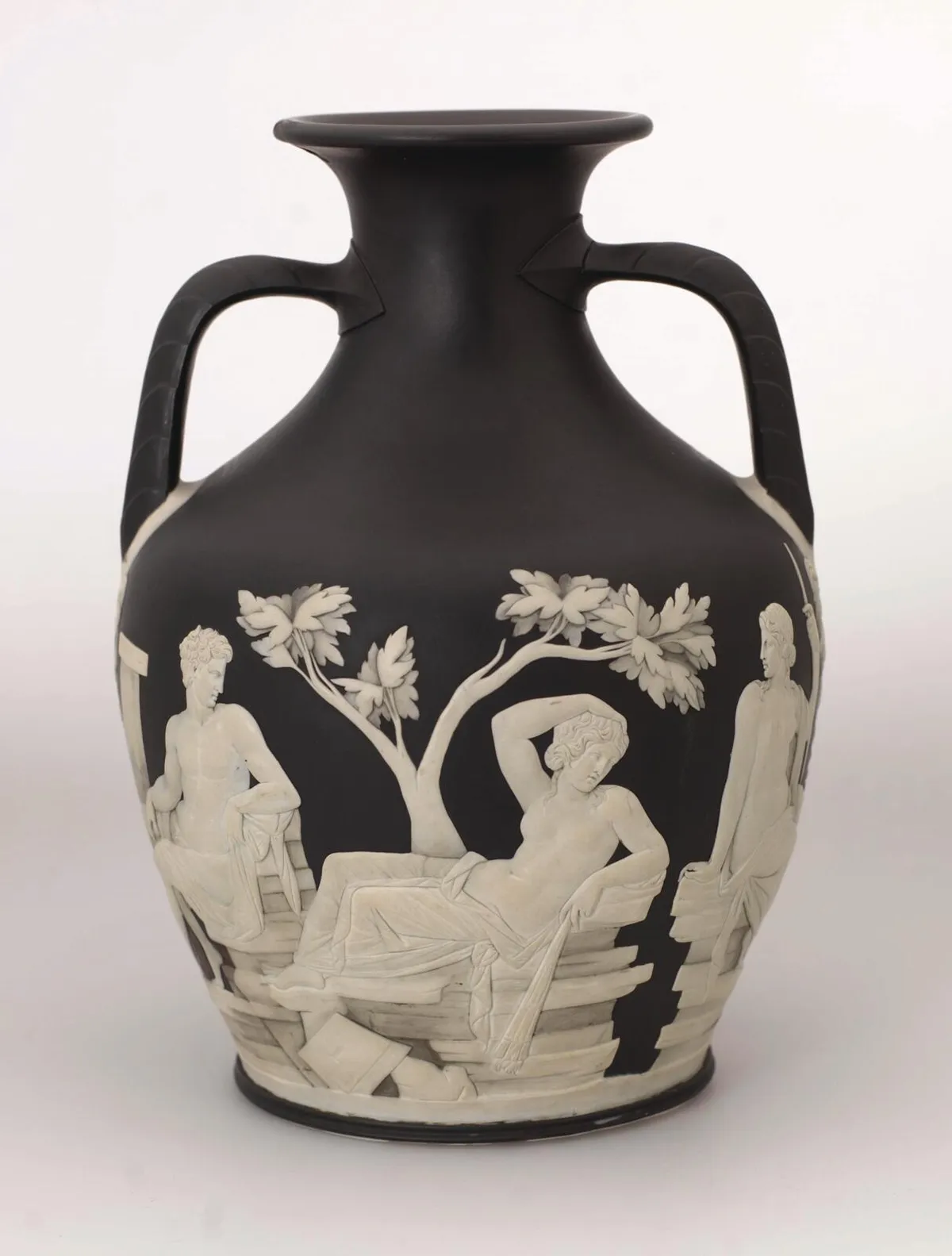Staffordshire grew from rural backwater to industrial hub, and one man was key to this transformation: Josiah Wedgwood. Josiah’s family owned a pottery in Burslem and he mastered the wheel at an early age, throwing pots of great beauty and complexity. Although tragically his prospects as a potter were cut short by smallpox, he didn’t let this dim his ambition: having taught himself science and business whilst bedridden, his eyes were set firmly on the future, and at 24 he partnered with leading potter Thomas Whieldon.
By 1759, he had started his own business and he meticulously recorded his obsessive experimenting. ‘A good W’t Glaze! The best of all these trials – Uniform, Transpar’t and nearly colorless,’ he noted excitedly on one occasion. This was the beginning of creamware, which, after Queen Charlotte bought it, became known as ‘Queensware’. A gracious and versatile earthenware body, his latest creation proved so popular that Wedgwood had to open a showroom in London to fulfil the demand.
You might also like Wedgwood Jasperware: everything you need to know
The 1760s saw two important people enter Wedgwood’s life. First came Thomas Bentley, a merchant who immediately became a friend and soulmate, bringing his knowledge of fashion, taste and commerce into the business. Then came his marriage to his cousin Sarah, who was not only a wealthy heiress, but also the love of his life. These important relationships brought stability and happiness, allowing Wedgwood’s imagination to take flight.
Creamware was good for making vases, and Wedgwood started to design ornamental products. ‘Vases with high crown’d hats! [...] new improvements crowd in upon me & almost overwhelm my patience,’ Wedgwood wrote to Bentley in 1766. With a keen understanding of marketing, these two clever men persuaded architects to incorporate their vases into the fashionable neoclassical townhouses that were being built in London and Bath at the time.

Riding the wave of neoclassical fashion, a new factory called Etruria was opened in 1769 for producing ornamental wares. More feverish experimentation followed – 5,000 delicately coloured trial samples from that period survive in neat drawers at the Wedgwood Museum. Production included vases in pearlware, agateware, black basalt, encaustic ware and Jasperware, which remains popular today. Jubilantly, Wedgwood wrote to Bentley about Jasperware: ‘ASTONISH THE WORLD ALL AT ONCE, for I hate piddling you know’.
But none of this, along with the transformation of Staffordshire, would have happened without Wedgwood’s visionary genius. A man of conviction, he was a member of the Unitarian Church, a ‘dissenter’, a free-thinking Protestant and believer in science and dignity for all. He doted on his family and built a village for his workers. His deep bond with Bentley was rooted in their shared religious and moral convictions; as abolitionists they produced thousands of medals proclaiming: ‘Am I not a man and a brother?’– a major campaigning tool against slavery.
You might also like our favourite blue and white ceramics
Wedgwood was also an avid reader of science and improved many of his production processes, from more reliable kilns, to engine-turned lathes and fire safety measures. Perhaps most importantly, Wedgwood was determined in his campaigning for the creation of the new Trent and Mersey Canal, which allowed Staffordshire to compete on the world stage – connecting the area with clay from Cornwall, via Liverpool, and coal from Derbyshire, and allowing the export of fragile porcelain to the rest of the world.
Today, the Wedgwood factory still stands proudly in Barlaston with a wonderful museum that you should visit if you can. Staffordshire, having lost most big factories, may be quiet again today – but it was made great by the tireless energy, care and optimism of one man and the people he loved. Without Josiah, the man with a lame leg and busy mind, British porcelain wouldn’t have gone on to enjoy its huge second wave of success.
